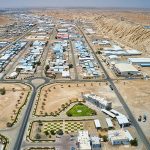Foreign workers in Bahrain sent a total of BD 726.9 million in remittances during the first nine months of 2024, reflecting a slight decrease of 1.1% from the previous year. Despite this decline, the figures remain stable, considering that the number of foreign workers in Bahrain exceeded 631,000 by the end of June. This stability is a positive sign for Bahrain’s economy, especially since the government does not impose restrictions or taxes on these transfers, maintaining a large portion of foreign currency reserves within the Kingdom.
Bahrain’s balance of payments has been showing consistent improvements in recent years, driven by higher oil prices and the increased value of non-oil exports, particularly aluminum. The positive trend in the balance of payments supports Bahrain’s decision to peg its dinar to the US dollar. The current account surplus decreased to BD 609.4 million in the first nine months of 2024, a 20.7% drop from the previous year. However, both oil and non-oil exports remained steady, while oil imports saw a decline and non-oil imports rose slightly.
Net services also saw a significant increase of 12.1%, reaching BD 1,251.6 million. Despite the decrease in remittances, the overall economic performance of Bahrain remains positive, indicating that the Kingdom is in a healthy financial position. The government’s commitment to maintaining an open remittance policy plays a crucial role in ensuring this stability. The stable figures, along with favorable macroeconomic conditions, help to support Bahrain’s economy and maintain its position in the global market.
The slight decline in remittances does not significantly impact Bahrain’s financial stability, as the country has been experiencing consistent improvements in its balance of payments. The government’s open policy regarding financial remittances and its rejection of proposals to introduce restrictions or taxes on these transfers have helped to ensure a stable flow of foreign currency reserves within the Kingdom. Bahrain’s decision to peg its dinar to the US dollar has also been supported by the positive trends in its balance of payments, which have been driven by higher oil prices and the increased value of non-oil exports.
Overall, Bahrain’s economy remains resilient, with the slight decline in remittances offset by the positive performance in other areas such as exports and net services. The government’s commitment to its open remittance policy will continue to be crucial in maintaining this stability and ensuring that Bahrain remains in a healthy financial position. Despite global economic challenges, Bahrain’s economy is expected to remain strong, supported by its open policies and favorable macroeconomic conditions.





















